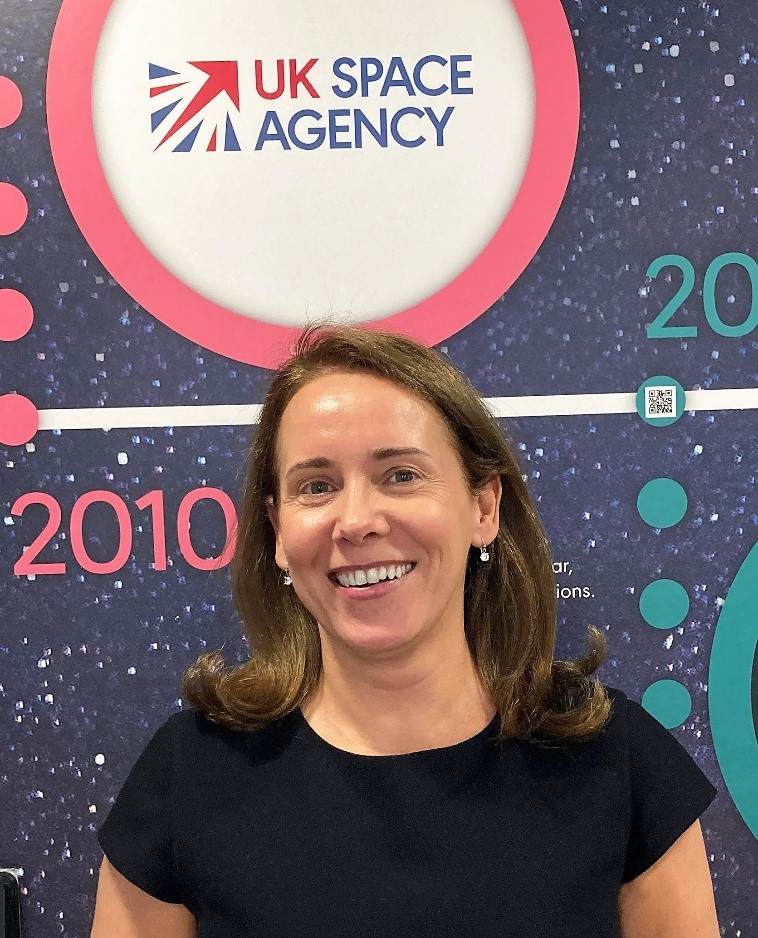Making space for women

”If you can see it, you can be it.” A quote that has inspired women over the years to aim higher and reach for the stars. There is no better place to do that right now than the space sector.
Here in the UK, I head up the UK Space Agency’s Office for Project and Programme Management. Founded in 2010, the Agency is at the heart of the growing space sector in the UK. It delivers on key ambitions set out in the UK’s National Space Strategy by catalysing investment into the space sector, delivering missions and capabilities, and championing the power of space to improve services across the economy and inspire the next generation. The Agency also manages the UK’s investments in, and membership of, the European Space Agency (ESA), an inter-governmental organisation independent of the European Union.
As you can imagine, delivering an infrastructure programme in the UK can be a little different than delivering an international multi-lateral space mission such as Artemis, a mission that will land the first woman and first person of colour on the Moon. My role involves collaborating nationally across UK government and with the UK Infrastructure and Projects Authority to lead implementation of project and programme management policies, procedures and standards for the Agency, and to provide technical expertise to help the Agency deliver its projects and programmes. I also work internationally in partnership with international space agencies, such as NASA and ESA, sharing best practice, and creating a shared understanding and alignment of how project and programme management operates within the space sector, strengthening relationships and performance of space projects and programmes.
One of those international partnerships is with Dr. Mary Coan Skow, Strategic Evaluation Program Manager for NASA’s Chief Program Management Officer (CPMO). Together we are immensely passionate about project and programme management and increasing equity, diversity and inclusion in the profession. As well as sharing a love of English tea, Mary and I are both mentors and advocates for all genders across the profession and the space sector, helping people to achieve their goals. Mary is an active Steering Committee member of the NASA Headquarters’ Employee Resource Group for Women (Women of NASA, WON) where she serves as the Communications Officer Elect, and I represent the UK at the International Astronautical Federation Project and Programme Management Committee. We both love creating a sense of community, networking and connecting people to bring together diverse individuals from various backgrounds.
Mary started her career at NASA Kennedy Space Center and discovered project management early on. She then transferred to NASA Johnson Space Center to become a Project Manager for Environmental Control Life Support and Emergency Systems where she worked on complex human rated critical space flight hardware. After 5 years Mary sought out an enterprise level role to implement positive change within project and programme management. The CPMO function at NASA was established in January 2022, and Mary is responsible for strengthening NASA’s oversight, management, and implementation of project and programme management policies, processes, and best practice.

NASA and the UK Space Agency have a history of international partnerships that have played a crucial role in advancing space exploration, scientific research, and technological innovation. This not only fosters collaboration and the exchange of knowledge, but also enables countries to pool their expertise and resources to achieve common goals. The international partnership between Mary and I, role models the way in which we can work together across the globe to increase capabilities, inspire the next generation and successfully deliver space projects and programmes.
The UK Space Agency and NASA have a partnership agreement for the Interstellar Mapping and Acceleration Probe (IMAP). The agreement, signed in 2021, allows for Imperial College London to design and build one of IMAP’s 10 instruments — a magnetometer called MAG — as well as provide ground support and personnel necessary to support the instrument and IMAP science team. IMAP will observe and map the Sun’s heliosphere — the volume of space filled with particles streaming out from the Sun, known as the solar wind — and study how it interacts with the local galactic neighbourhood beyond. The boundary zone at the edge of the heliosphere offers protection from the harsher radiation of interstellar space; it may have played a role in creating a habitable solar system and is critical for safe human exploration of the Moon and Mars. The Astronomy Technology Centre in Edinburgh, here in the UK, also built one of the instruments on NASA’s James Webb Space Telescope, which is returning astonishing images of the early days of our universe. The production of the telescope generated technology not just for space science but is also being used by ophthalmologists here on Earth to guide laser eye surgery. Whichever way you look at it, there are remarkable things happening across projects and programmes in the space sector which make it a factory of innovation and discovery.
Whilst there are still many ‘hidden figures’ across the space sector, particularly in project and programme management, it's becoming a more diverse sector to work in. From Mary and I utilising our prowess and collaborative approach to lead the way in project and programme management across our respective space agencies, to NASA’s growing pool of talent, including Lara Kearney, Programme Manager of the Extravehicular Activity and Human Surface Mobility Programme, Amanda Mitskevich, Programme Manager for the Lauch Services Programme, and Catherine Bahm, Project Manager for Low Boom Flight Demonstrator. Rosemary Coogan recently became the UK’s third ever Astronaut, after Tim Peake and Helen Sharman, and Pam Melroy has been providing inspirational leadership at NASA for years from her time as an Astronaut and piloting the Space Shuttle to becoming NASA’s Deputy Administrator in 2021.
Women in all sectors around the globe continue to inspire and push boundaries to achieve what used to be the impossible. As Katherine Johnson, NASA’s ‘human computer’ providing pivotal calculations during the Mercury and Apollo missions, once said, “Women are capable of doing everything men are capable of doing.”
You may also be interested in:


0 comments
Log in to post a comment, or create an account if you don't have one already.